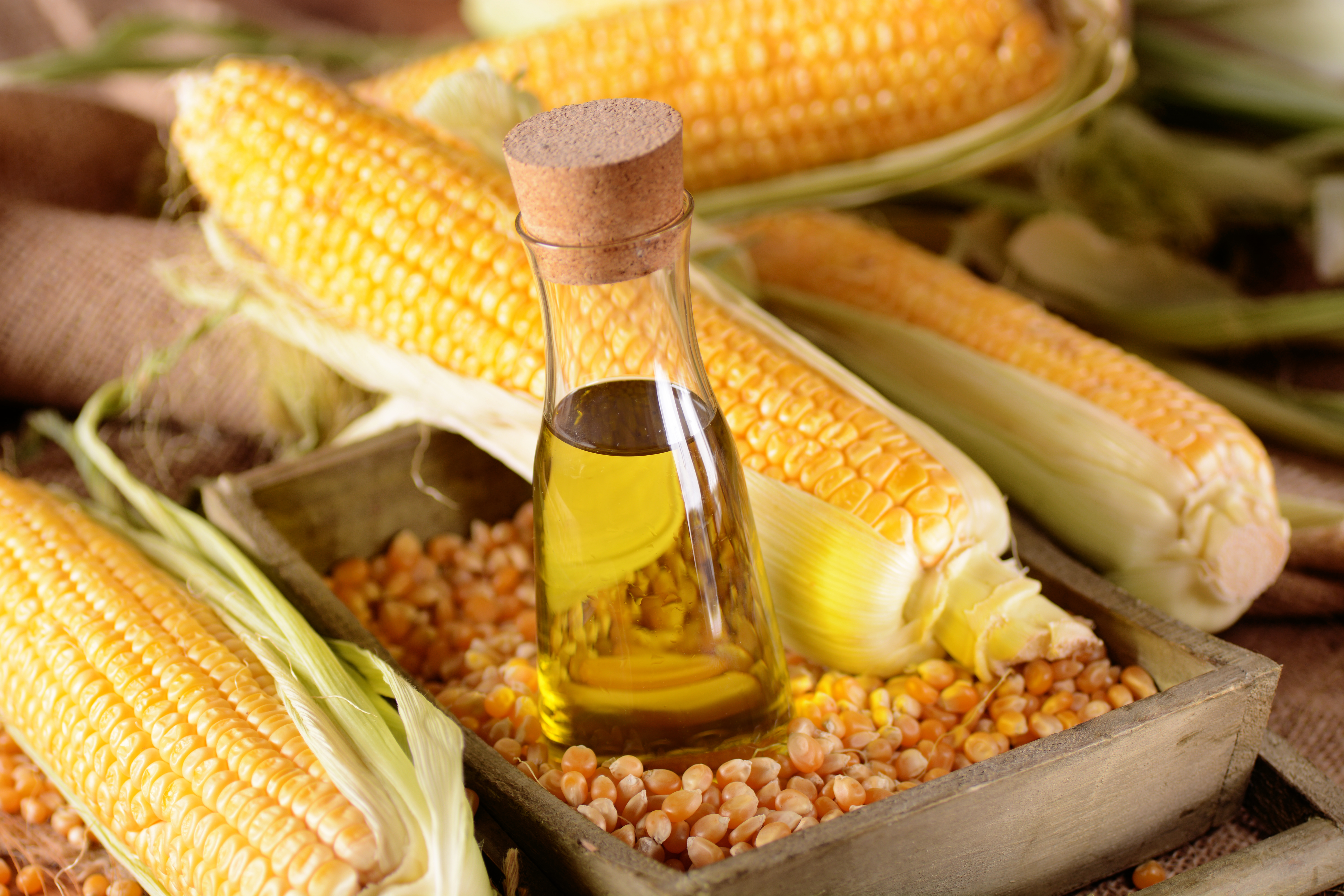
Even if you’re not much of a cook, you’ve probably heard of corn oil. It’s a popular product found in most kitchens, and it’s very versatile and cheap. Is it good for you from a health perspective, however? Corn oil isn’t only used in kitchens; it’s got several jobs, from industrial uses to cosmetics. You might have used olive oil before due to its health benefits. Could corn oil be a better option instead?
First things first: what is corn oil?
Corn is one of the most popular crops grown across the globe. Because it’s so readily available and one of the cheapest crops on the market is accessible to everyone.. When you think of corn, “oily” probably isn’t in the description. Because corn isn’t that oily, it must be pressed to separate the oil from the kernels. The oil made from this process is then refined and steam distilled before you open the finished product.
There are a few different kinds of corn oil to watch out for, such as corn oil products that have a high smoke point. Because of the low price and neutral flavor that won’t affect what you’re making, high-smoke-point corn oil is a popular choice. However, research has shown that when nonorganic corn oil is heated, it can be harmful to your body. When heated, such as in the deep fryer, it can produce a harmful anti-nutrient called acrylamide, a compound that has been labeled a potential carcinogen by the International Agency for Research on Cancer. Reasearch published in PubMed also suggests that acrylamide has also been linked to problems with hormones and muscle function, in addition to nerve function.
Before you decide to ditch the corn oil, however, wait until you hear about some of its health benefits. If you purchase organic, unrefined corn oil or cold-pressed corn oil, you can avoid some of these troublesome side effects, as these oils have a lower smoke point in addition to having many great health benefits. This type of unrefined oil can be used in the kitchen, in the medicinal world, and even as a massage oil.
Now that you’re familiar with a couple of the ways corn oil is manufactured, consider the health benefits of corn oil. Generally, unrefined organic corn oil has more health properties than refined organic corn oil. First, corn oil has anti-inflammatory properties. This can help protect your body from diseases, such as diabetes, heart disease, and, possibly, cancer. That’s because corn oil is full of a plant-based compound called “phytosterol.” The anti-inflammatory properties of corn oil can also help relieve symptoms of arthritis, headaches, and stomach issues.
Corn oil can also improve your vision. “Lutein” is a compound that can only be synthesized by plants, and, when ingested, it can possibly reduce the number of free radicals in your body. Lutein can also protect your vision and possibly reduce the risk of cataract formation. Moreover, unrefined corn oil can be good for your skin. Corn oil is sometimes used in the massage profession. If you’re ingesting it or rubbing it on your skin, clinical research suggests that the antioxidants and tocopherols can help reduce the likelihood of skin infections, inflammation, irritation, and blemishes. However, unrefined corn oil is also high in fat, so you should use small amounts if you decide to incorporate it into your skincare routine.
Of course, corn oil isn’t all good. In its natural, organic form, corn oil can have some health benefits, but refined, high-smoke-point corn oil is generally unhealthy. Consider the main detriments to incorporating refined corn oil into your diet.
It’s easy to use lots of oil when cooking. Because corn oil can withstand high temperatures, it’s often used when deep frying food and it cheap. Most deep-fried food is dunked in this very fatty, refined oil, which translates to an extreme increase in calories in whatever you’re eating. If your diet is high in corn oil, chances are you’re consuming extra calories at every meal you may not be aware of.
Refined corn oil is also very high in omega-6 fatty acids. While omega-6 fatty acids can be good for you, if ingested in small amounts, you should always balance out your omega-6 fatty acids with Omega-3 fatty acids. Omega-6 fats promote inflammation, which, in very small amounts, is good for your body and helps protect it from disease. Too much inflammation, however, can increase your risk factor for contracting a variety of diseases, including cancer, heart disease, obesity, and Alzheimer’s.
Moreover, most corn oil is made from genetically modified, or GMO, corn. New research is being conducted every day about whether GMO foods are good for the population in general. While most GMO food is deemed safe, GMO corn crops have only been around for the last 20 years or so. Therefore, the long-term health effects of such produce are not readily available. On top of that, per the United States Department of Agriculture, GMO corn is often subjected to pesticides such as glyphosate. In 2015, the World Health Organization deemed this pesticide a probable carcinogen.
When it comes to corn oil, does the good outweigh the bad? Considering all the information, there are certainly healthier oils out there for you, such as olive oil and coconut oil. You should probably avoid corn oil as your go-to cooking oil, and, if you purchase organic, unrefined corn oil, you may want to use it only in small amounts. In summary, you should avoid corn oil because potential negative risk almost always outweigh its benefits.
